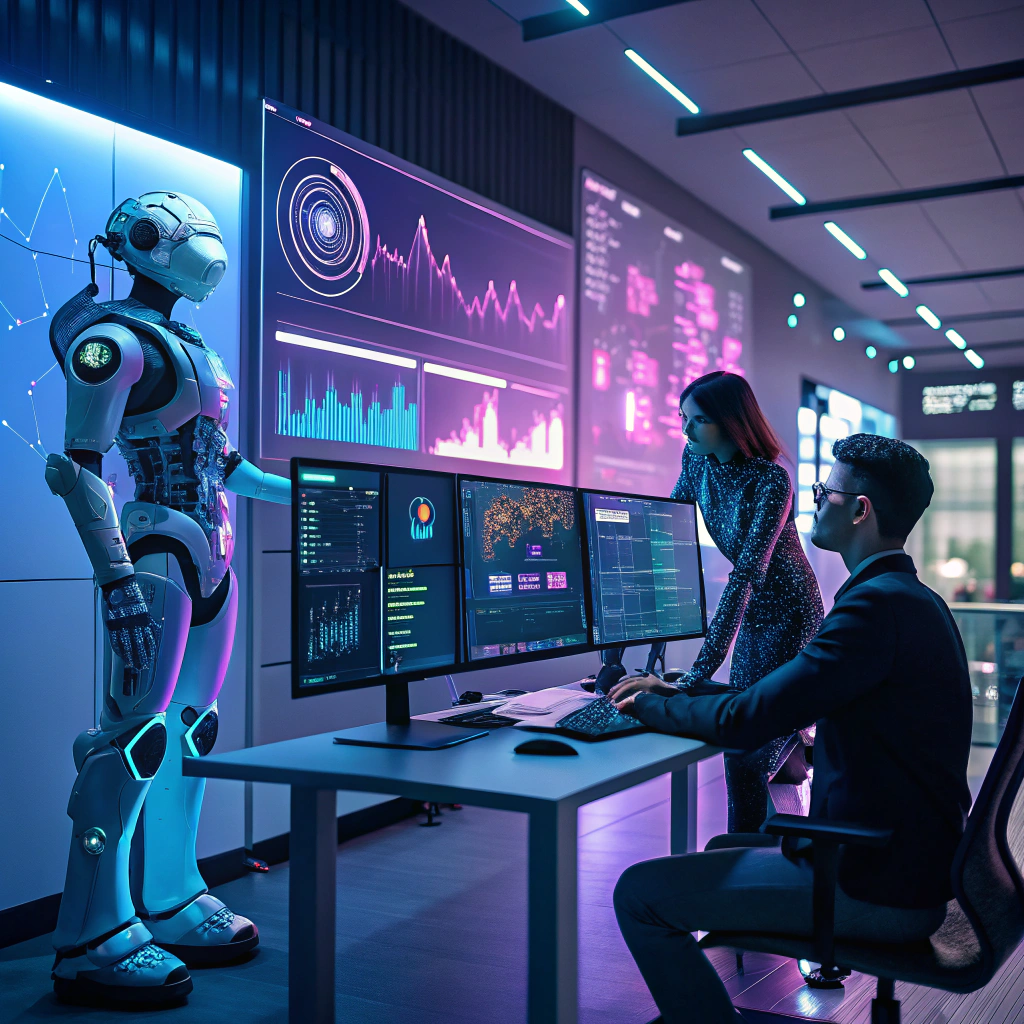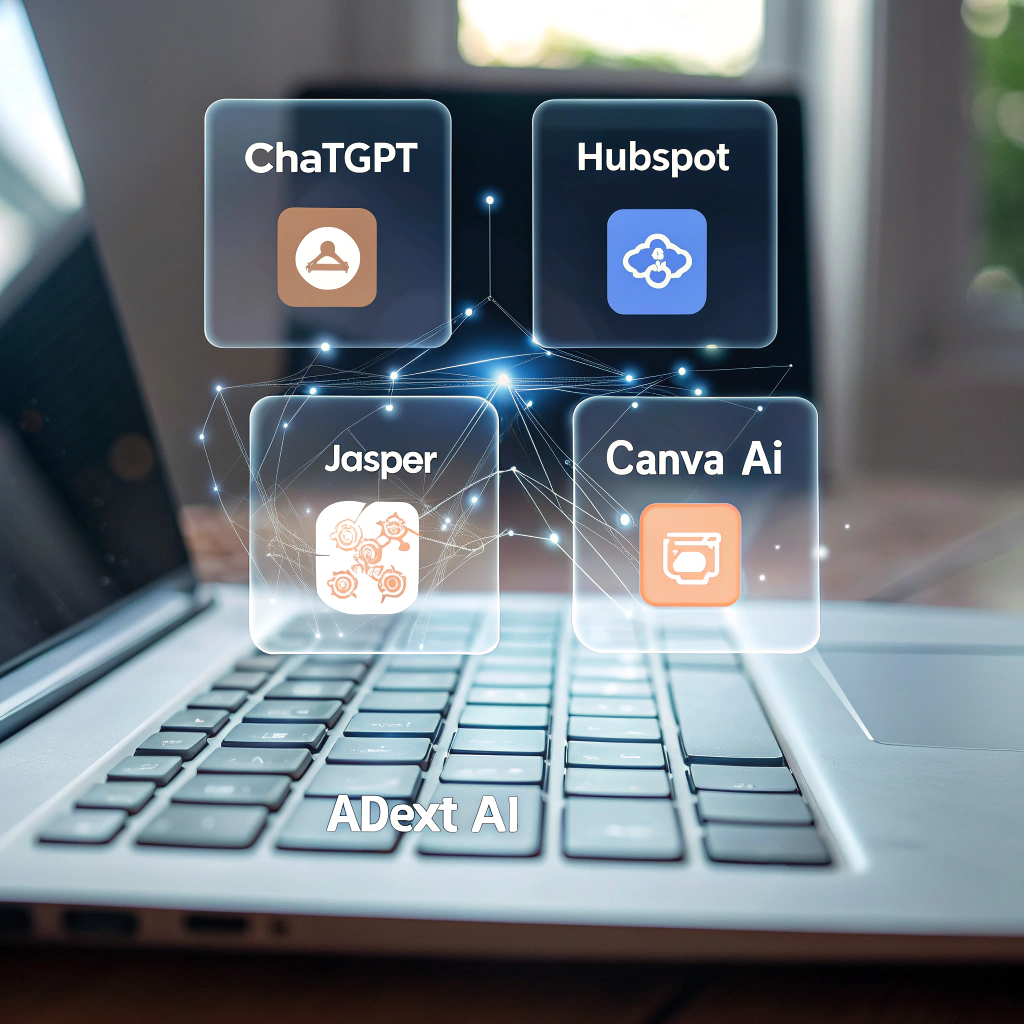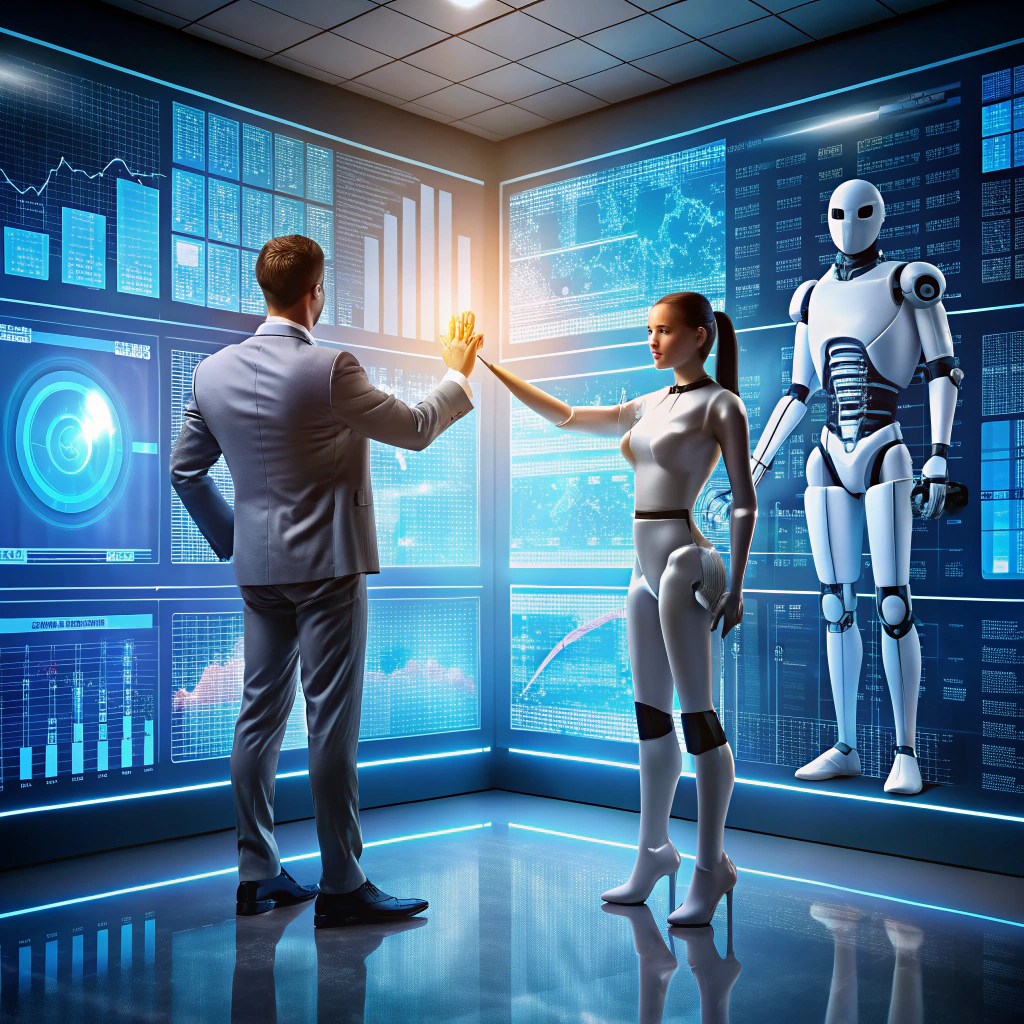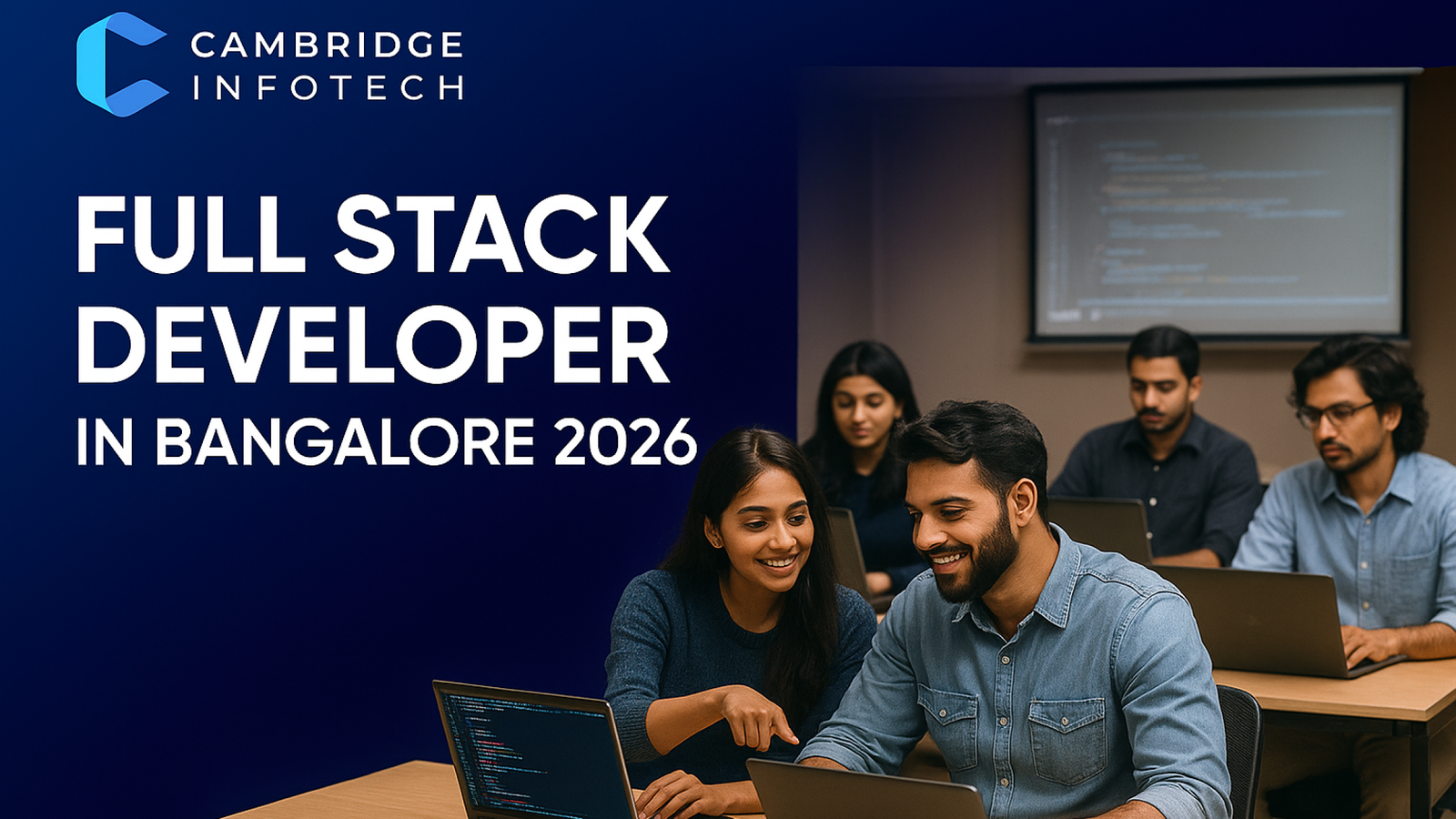Why AI is the Future of Digital Marketing
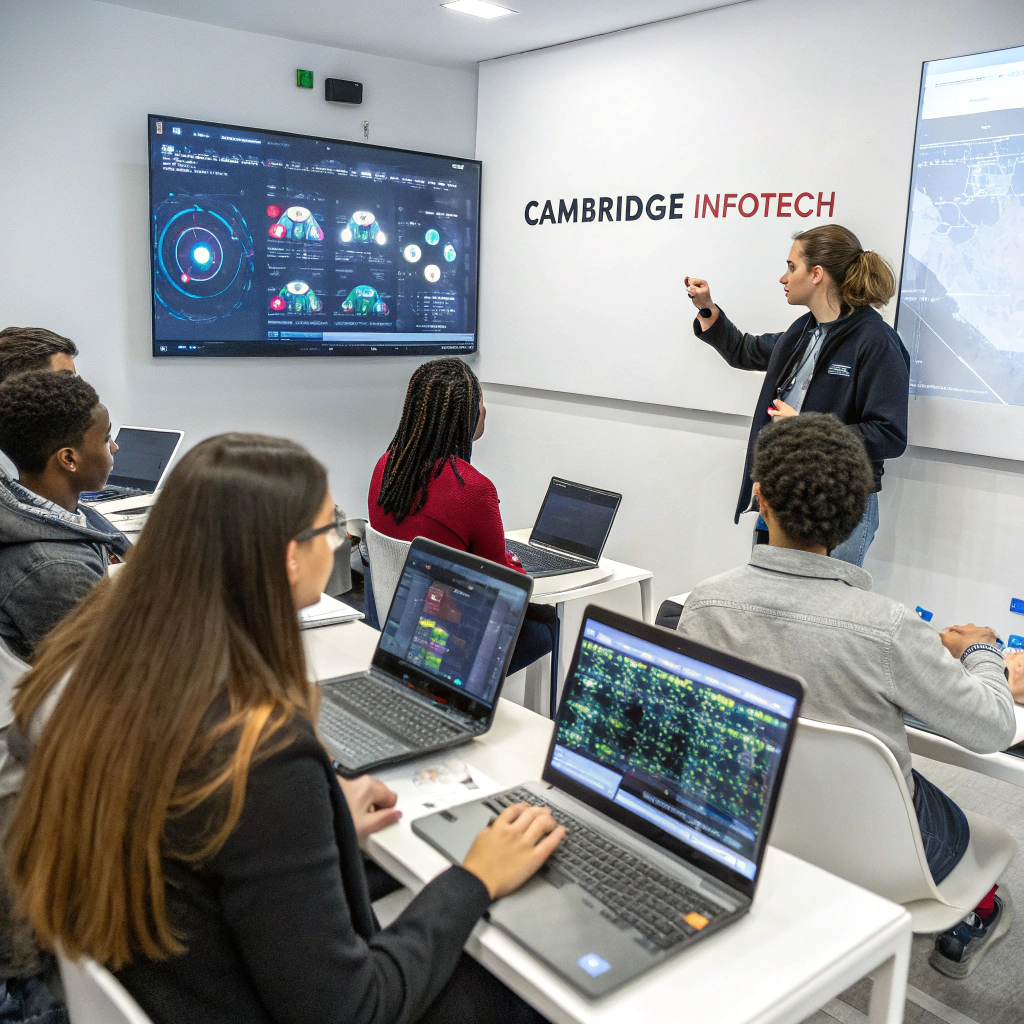
Introduction
AI in Digital Marketing is transforming how businesses connect, engage, and convert audiences online. From personalized customer experiences to predictive analytics and automated ad campaigns, Artificial Intelligence is redefining every aspect of digital marketing strategy. As brands compete in 2025’s data-driven landscape, understanding how AI enhances targeting, creativity, and performance is no longer optional it’s essential for success.
AI in Digital Marketing: Unlock Powerful Success
Digital marketing has evolved rapidly over the past decade. Traditional strategies emails, banner ads, SEO are no longer enough to grab attention in today’s crowded online world. This is where AI steps in.
AI can analyze massive amounts of data in seconds, predict customer behavior, and even generate content. Imagine having a super-intelligent assistant that never sleeps, never complains, and always knows what your audience wants. That’s AI.
Key Benefits:
Data-Driven Decisions: AI can process millions of data points to give insights no human could in real-time.
Hyper-Personalization: Tailor campaigns to individual users based on behavior, preferences, and past purchases.
Cost Efficiency: Automate repetitive tasks like email campaigns, social media posts, and even ad bidding.
Fun fact: Some AI tools can write blog posts, create ads, and even compose social media captions in seconds. That’s right AI might just be your future coworker.
The Role of AI in Digital Marketing Today
Content is king, but creating high-quality content consistently is challenging. AI comes to the rescue:
Blog Writing & SEO Optimization: AI tools like ChatGPT and Jasper can generate SEO optimized blogs, saving hours of work.
Social Media Posts: AI can suggest trending hashtags, optimal posting times, and even create captions tailored for your audience.
Visual Content: Platforms like Canva now have AI-powered tools to design social media graphics and ads automatically.
Impact: Businesses can maintain consistent content output without burning out their marketing teams.
Pro Tip: While AI can generate content, human creativity is still essential to add personality and authenticity. Think of AI as your helpful assistant, not the full replacement.
Future Trends of AI in Digital Marketing
AI doesn’t just react—it predicts. Predictive analytics uses historical data to forecast customer behavior, trends, and even sales.
Examples:
E-Commerce: Predict what products a user is likely to buy next.
Email Campaigns: Send personalized offers based on when a user is most likely to engage.
Ad Spend Optimization: Automatically adjust your ad budget to target audiences that convert faster.
Fun fact: Netflix and Amazon rely heavily on predictive analytics. Ever wondered how Netflix recommends the perfect show or how Amazon seems to read your mind? That’s AI.
Enhanced Customer Engagement
Chatbots and virtual assistants powered by AI have revolutionized customer support:
24/7 Availability: No more waiting in queues—customers get instant support anytime.
Human-like Conversations: AI can understand context, intent, and even emotions to provide meaningful answers.
Personalized Experience: AI remembers past interactions, ensuring a smooth and tailored customer journey.
Impact: Happier customers, reduced support costs, and better brand loyalty.
AI-Driven Advertising
Digital advertising is one of the most competitive spaces online. AI helps marketers:
Target the Right Audience: AI identifies users most likely to convert.
Optimize Ad Spend: Automatically adjust bids for maximum ROI.
A/B Testing: AI tests multiple versions of ads to see which performs best.
Secret Sauce: Businesses using AI for ad campaigns report higher engagement and lower acquisition costs.
Preparing for the AI-Powered Future
So, how can beginners, students, professionals, and businesses prepare?
Learn AI Tools: Familiarize yourself with platforms like HubSpot, Jasper, ChatGPT, and Google Analytics.
Understand Data Analytics: The more you understand data, the better you can leverage AI insights.
Focus on Creativity: AI handles automation, but human creativity sets you apart.
Experiment & Innovate: Don’t fear AI—use it to test ideas, campaigns, and strategies.
Bottom line: AI isn’t replacing marketers—it’s empowering them. The future belongs to those who embrace it.
Real-World Applications of AI in Marketing
AI is no longer just theoretical; it’s being used by top brands across the globe to transform their marketing strategies. Here are some key applications:
Personalized Email Campaigns
AI analyzes user behavior, purchase history, and engagement to send highly personalized emails.
Example: E-commerce platforms like Amazon use AI to recommend products via email based on browsing history.
Benefits: Higher open rates, improved click-through rates, and better conversions.
AI-Powered Social Media Management
Platforms like Buffer, Hootsuite, and Sprout Social integrate AI to:
Suggest the best posting times based on audience activity.
Generate captions and hashtags optimized for engagement.
Monitor brand sentiment and trends automatically.
Voice Search Optimization
With smart devices becoming ubiquitous, voice search is growing rapidly. AI helps marketers optimize content for voice queries:
Natural language processing (NLP) helps understand conversational queries.
Marketers can create FAQs and conversational content to capture voice search traffic.
Chatbots and Virtual Assistants
AI-powered chatbots are becoming increasingly sophisticated:
Handle complex customer queries without human intervention.
Integrate with CRM systems to provide personalized support.
Reduce response time and increase customer satisfaction.
Top AI Tools Transforming Digital Marketing
To truly embrace AI, marketers need the right tools. Here’s a breakdown of some game-changing AI platforms:
| Tool | Purpose | Key Benefit |
|---|---|---|
| ChatGPT / Jasper | Content creation | Generate blogs, ad copy, and social media posts instantly |
| HubSpot AI | Marketing automation | Personalizes email campaigns, workflows, and lead scoring |
| Hootsuite / Buffer | Social media scheduling | Suggests optimal posting times & captions |
| Crimson Hexagon | Social listening | Analyze trends, audience sentiment, and competitive insights |
| Adext AI | AI advertising | Optimizes ad spend by targeting high-converting audiences |
| Canva AI | Visual content | Automatically generates graphics, banners, and ad creatives |
Tip: Start with one or two AI tools first and gradually integrate more as you get comfortable.
AI for SEO: Smarter Search Marketing
Search Engine Optimization (SEO) is evolving with AI:
AI-Powered Keyword Research: Tools like SEMrush and Ahrefs now use AI to suggest trending, high-converting keywords.
Content Optimization: AI tools analyze top-ranking content and recommend improvements.
Rank Tracking & Competitor Analysis: AI helps track search performance and identify gaps in real-time.
Impact: AI makes SEO smarter, faster, and more precise, helping businesses dominate search results.
Predictive Analytics: From Guesswork to Certainty
Predictive analytics is one of AI’s most powerful marketing applications. It enables marketers to:
Forecast trends before they happen.
Identify high-value leads likely to convert.
Predict customer churn and plan retention strategies.
Example: Spotify uses predictive analytics to recommend songs and playlists that keep users engaged for longer. Similarly, Netflix predicts what you’ll watch next based on AI algorithms.
Insider secret: Businesses using predictive AI can increase ROI by targeting the right customers at the right time.
AI in Paid Advertising
Paid advertising is one area where AI has already changed the game:
Automated Ad Placement: AI chooses the best platform and audience for your ads.
Dynamic Bidding: Real-time adjustments maximize ROI.
A/B Testing at Scale: AI tests multiple ad variations instantly to find the most effective creative.
Impact: Companies save money, reach the right audience, and improve ad performance.
AI for Customer Retention
Keeping customers is as important as acquiring them. AI helps businesses improve retention by:
Personalized Recommendations: Suggest products or services based on previous purchases.
Predicting Churn: Identify customers likely to leave and send targeted campaigns to retain them.
Automated Loyalty Programs: AI can manage and optimize rewards based on user engagement.
Example: Starbucks uses AI to send personalized offers through its app, keeping customers coming back for more.
Gamification and Interactive Experiences
AI enables marketers to create interactive and engaging experiences:
Quizzes, polls, and challenges powered by AI adapt based on user input.
Augmented reality (AR) experiences that personalize content for each user.
AI-powered gamification increases engagement and brand loyalty.
Impact: Brands can connect with audiences on a deeper level, turning marketing into an experience rather than just a message.
Advanced AI Trends Shaping Marketing in 2026
AI is evolving rapidly, and by 2026, marketers will see even more advanced applications that go beyond current tools. Let’s explore the biggest trends to watch:
Hyper-Personalization with Deep Learning
AI will go beyond basic personalization and analyze behavioral patterns, purchase history, and psychographics to craft unique experiences for every customer.
Example: E-commerce websites could change layouts, product recommendations, and even color schemes dynamically for each user.
Result: Increased conversions, higher engagement, and stronger brand loyalty.
AI-Generated Video Content
Video marketing is king, and AI is making video creation faster and smarter.
Tools will generate marketing videos, ads, and tutorials based on minimal input.
Example: A brand could create 10 versions of a product demo in minutes, each tailored to a specific audience segment.
Voice AI and Conversational Marketing
Voice assistants like Alexa, Siri, and Google Assistant are changing the way users search and shop.
AI will enable voice-optimized marketing campaigns, including interactive voice ads and personalized audio content.
Brands that adapt early will capture audiences using voice search more effectively.
Predictive Customer Journeys
AI will map and predict entire customer journeys, from awareness to conversion.
Automated nudges, emails, push notifications, and chat prompts will guide customers seamlessly toward purchase.
Result: Higher conversion rates and fewer abandoned carts.
Case Studies: Brands Winning with AI
Netflix
Uses AI to predict what viewers want to watch next.
Customizes thumbnails for different users to increase engagement.
Impact: Reduced churn and billions in revenue from recommendations.
Sephora
AI-powered virtual assistant helps users try makeup virtually.
Personalized product recommendations improve sales.
Impact: Boosted customer engagement and repeat purchases.
Starbucks
Predictive AI identifies the best times to send offers and rewards.
Personalized app experience increases loyalty and app usage.
Coca-Cola
Uses AI for social listening to track customer sentiment.
AI helps create campaigns that resonate with audience emotions.
Takeaway: These brands didn’t just adopt AI—they integrated it into the core of their marketing strategy.
Challenges in Implementing AI
While AI is powerful, it comes with challenges:
Data Privacy Concerns
Collecting and analyzing user data is key for AI, but privacy laws like GDPR and CCPA must be respected.
Solution: Transparent data practices and secure storage.
High Initial Investment
AI tools and platforms can be costly for small businesses.
Solution: Start with scalable tools, test ROI, and gradually expand usage.
Skill Gap
Marketing teams may lack AI expertise.
Solution: Invest in training, online courses, and workshops to upskill your team.
Over-Reliance on Automation
AI can’t replace human creativity completely.
Solution: Combine AI insights with human intuition for the best results.
AI for Multi-Channel Marketing
AI allows marketers to unify campaigns across multiple channels:
Email Marketing: AI predicts the best send times and content for each subscriber.
Social Media: AI identifies trending topics and suggests engaging posts.
Paid Ads: Optimizes campaigns in real-time for maximum ROI.
Website UX: AI tools analyze behavior to improve navigation and personalization.
Pro Tip: Multi-channel campaigns powered by AI create a seamless experience, making your brand memorable and engaging.
AI in Influencer Marketing
AI platforms can identify the best influencers for your brand based on engagement metrics, audience demographics, and content relevance.
Predict ROI from influencer collaborations before launching campaigns.
Automate outreach, content planning, and performance tracking.
Example: A fashion brand could use AI to find micro-influencers with highly engaged audiences, saving time and money.
The ROI of AI in Digital Marketing
Implementing AI isn’t just about being trendy it directly impacts your bottom line:
Increased Efficiency: Automated campaigns reduce time spent on repetitive tasks.
Higher Conversions: Personalized campaigns drive more sales.
Better Customer Retention: Predictive insights allow proactive engagement.
Cost Savings: AI optimizes ad spend and reduces wasted marketing efforts.
Insider Tip: Brands that invest in AI strategically see up to 30–40% increase in ROI on marketing campaigns.
Preparing for AI-Driven Marketing Careers
For beginners, students, and professionals:
Learn AI tools and platforms relevant to marketing.
Understand data analytics and customer behavior.
Stay updated on AI trends and emerging technologies.
Experiment with AI-powered campaigns even small projects build valuable experience.
Fun Tip: AI can be your personal tutor use it to generate practice campaigns, content, and reports while learning.
Future Predictions for AI in Marketing (2026 and Beyond)
By 2026, AI will be far more than a tool—it will be an integral part of marketing strategy. Here’s what we can expect:
Autonomous Marketing Campaigns
AI will design, execute, and optimize campaigns without human intervention.
Example: A brand could launch a multi-channel campaign in minutes, and AI would adjust targeting and creatives in real-time based on performance metrics.
Emotionally Intelligent AI
Future AI will understand emotions, tone, and sentiment in real-time.
Ads and content could adapt dynamically to a user’s mood, increasing engagement and emotional connection with brands.
AI-Powered Market Research
AI will analyze competitor campaigns, audience behavior, and emerging trends automatically.
Businesses will get real-time market insights without spending weeks on research.
Fully Integrated Customer Journeys
AI will track every touchpoint, from the first ad view to final purchase, predicting what a user needs next.
Example: Personalized offers, follow-up emails, and retargeting ads automatically synchronized to maximize conversions.
Ethical Considerations in AI Marketing
With great power comes great responsibility. As AI dominates marketing, ethical considerations are crucial:
Data Privacy
Collecting personal data without consent can backfire.
Solution: Be transparent, secure data, and comply with laws like GDPR and CCPA.
Bias in AI Algorithms
AI learns from historical data, which may reflect biases.
Solution: Continuously monitor AI outputs and correct any biased decision-making.
Over-Automation
Relying solely on AI can make campaigns robotic and impersonal.
Solution: Maintain human creativity in messaging and storytelling.
Transparency
Users should know when they’re interacting with AI (chatbots, recommendation engines, etc.).
Transparency builds trust, which is essential for long-term customer relationships.
Strategies to Stay Ahead of AI Trends
Continuous Learning
Stay updated with AI marketing tools, case studies, and industry news.
Online courses, webinars, and certifications are a great way to keep skills sharp.
Experimentation
Test AI-powered campaigns regularly to learn what works.
Small experiments often reveal insights that can scale to larger strategies.
Human + AI Collaboration
Don’t rely solely on AI—combine it with human creativity.
Example: AI generates content ideas, but humans craft the final messaging to add personality and relatability.
Focus on Customer Experience
AI can optimize performance, but exceptional customer experience requires empathy and creativity.
Use AI insights to enhance, not replace, human touchpoints.
AI in Emerging Technologies
Augmented Reality (AR) & Virtual Reality (VR)
AI will enhance AR and VR marketing experiences, creating interactive product demos, virtual stores, and immersive brand experiences.
Example: IKEA’s AI-powered AR app lets users visualize furniture in their own homes.
AI-Generated Personalized Video Ads
Video content will automatically adapt to each viewer’s preferences.
Ads will dynamically change based on browsing history, location, and even time of day.
Predictive Customer Support
AI will anticipate customer issues before they arise.
Example: A subscription service could predict a user’s dissatisfaction and send solutions proactively.
Preparing Businesses for AI in 2026
Invest in AI Tools: Start with marketing automation, analytics, and content creation platforms.
Train Teams: Equip marketing professionals with AI knowledge.
Analyze Data: Clean, structured data is key for AI to work effectively.
Stay Flexible: AI will evolve rapidly adapt strategies accordingly.
Pro Tip: Businesses that embrace AI early will gain a first-mover advantage, capturing market share while competitors play catch-up.
AI and the Human Element
Even in a fully AI-powered marketing landscape, humans remain essential:
Creativity & Storytelling: AI can generate ideas, but humans add emotion and narrative.
Relationship Building: Customer trust comes from genuine interaction, not just AI automation.
Strategic Thinking: AI can analyze trends, but humans make long-term decisions.
The takeaway: The future isn’t AI vs. humans it’s AI + humans working together to create smarter, faster, and more effective marketing campaigns.
Practical Steps to Implement AI in Your Marketing
Whether you’re a beginner, student, professional, or business, here’s how to start leveraging AI:
Choose the Right AI Tools
Content Creation: ChatGPT, Jasper, Writesonic
Analytics & Insights: Google Analytics, HubSpot AI, SEMrush
Social Media: Buffer, Hootsuite, Lately AI
Paid Ads: Adext AI, Albert AI
Tip: Start with 1–2 tools and gradually expand as you become comfortable.
Collect & Organize Your Data
AI thrives on data. Ensure your customer data is clean, structured, and compliant with privacy laws.
Tools like HubSpot, Salesforce, or Zoho can centralize your data efficiently.
Automate Repetitive Tasks
Use AI to automate:
Email campaigns
Social media posts
Ad optimization
This frees up your team for creative, high-impact work.
Test, Analyze, and Optimize
AI can run A/B tests and predictive analyses faster than humans.
Continuously measure campaign performance and adjust based on AI insights.
Maintain Human Creativity
Let AI handle automation and data insights, but humans add the story, emotion, and strategy.
Combine AI efficiency with human creativity for maximum impact.
FAQs
1. What is AI in Digital Marketing?
AI in Digital Marketing refers to the use of artificial intelligence technologies—such as machine learning, predictive analytics, and automation to analyze data, personalize campaigns, and optimize marketing performance. It helps marketers make smarter, data-driven decisions and improve ROI.
2. How does AI in Digital Marketing help businesses grow?
AI in Digital Marketing helps businesses grow by automating repetitive tasks, improving targeting precision, enhancing personalization, and predicting customer behavior. This allows brands to create more effective campaigns, reduce costs, and boost conversions.
3. What are some real-world examples of AI in Digital Marketing?
Popular examples of AI in Digital Marketing include:
Chatbots used for 24/7 customer support
Personalized product recommendations on Amazon
Predictive email marketing campaigns
Automated ad bidding on Google Ads
These applications show how AI in Digital Marketing improves both efficiency and customer engagement.
4. Which tools are best for AI in Digital Marketing?
Top tools for AI in Digital Marketing include:
HubSpot AI for automation and lead scoring
ChatGPT / Jasper AI for content generation
Adext AI for ad optimization
Canva AI for visual design
These tools streamline workflows and maximize marketing effectiveness.
5. Can AI in Digital Marketing replace human marketers?
No AI in Digital Marketing is a powerful assistant, but it cannot fully replace human creativity, emotion, or strategic thinking. The best results come from combining human expertise with AI-driven insights.
Conclusion
AI in Digital Marketing is no longer just a futuristic concept it’s the present and future of business growth. From data-driven insights to hyper-personalized campaigns, AI is reshaping how brands understand and engage with their audiences. Companies that embrace this technology gain a competitive edge through smarter automation, improved customer experiences, and measurable ROI. As digital landscapes evolve, professionals who master AI in Digital Marketing will lead the next wave of innovation, transforming strategies into powerful success stories.
Kickstart your AI-powered digital marketing journey with Cambridge Infotech enroll now and master the skills to stay ahead in 2026
